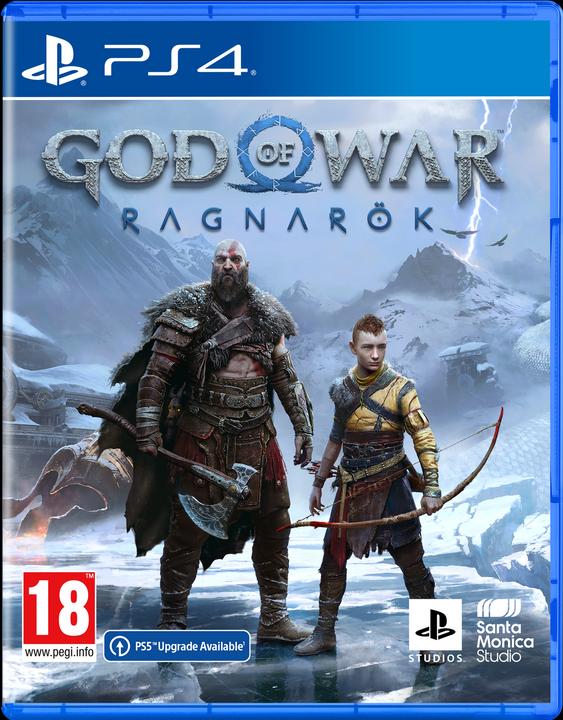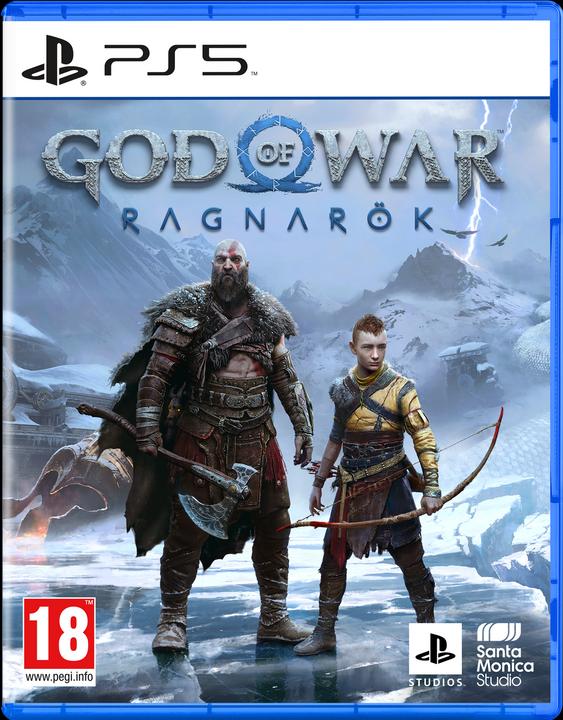
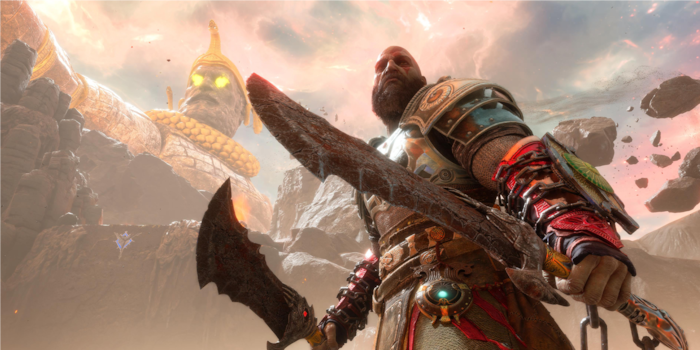
Valhalla review – the free God of War expansion is absolute madness
The new expansion for God of War: Ragnarök takes the God of War to Valhalla for a therapy session. And, boy, does it pack a punch!
Unexpectedly, Sony announced a story expansion for God of War: Ragnarök at the Game Awards. The best part? The DLC is free! Developer studio Sony Santa Monica described the additional content as a thank you to all God of War fans.
If you have Ragnarök for the PS4 or PS5, you can download Valhalla for free from the PlayStation Store. In fact, you absolutely should do so. This expansion is one of the best I’ve played this year. It’s a dream come true for all long-time God of War fans and a great conclusion to Kratos’s Norse adventure.
What’s Valhalla about?
The Valhalla expansion takes place after the end of Ragnarök. You can download and play it without having finished the main game, but I advise against it. It contains massive spoilers. On that note: if you haven’t completed Kratos’s story in Ragnarök, you should stop reading this article.
Let’s recap, in case the end of Ragnarök has slipped your mind. Odin and his knaves have been defeated. Atreus has said goodbye to his father and is searching for surviving giants in the mythical Norse world with Angrboda. Meanwhile, Kratos hopes to restore peace in Asgard together with Freya and Mimir. The end of Ragnarök suggests that Kratos is full of hope for the future. Not least because he finds a mural depicting him not as the god of war, but as the god of peace, beloved by the people of Asgard.

Source: YouTube / Shirrako / Sony Santa Monica
In Valhalla, I learn that Kratos isn’t entirely comfortable in this new role. He doesn’t trust himself to be in such a position of power. Many years ago, he had once before misused his divine power in Greece, catapulting countless people and gods into misery. He avoids Freya and tries to ignore the whole god thing.
One day, Kratos receives a letter from an anonymous sender inviting him to visit Valhalla, where a challenge awaits him that will force him to face up to his past. That’s all the information Kratos gets. But hey, who cares when this sounds like the perfect, life-threatening excuse to keep avoiding Freya. And so begins Kratos’s prolonged therapy session in Valhalla, in which he has to confront the demons of his past.

Source: Domagoj Belancic
What’s the expansion’s gameplay like?
Valhalla is a rogue-lite game. The gameplay loop goes fight, upgrade, die, repeat. The aim is to get to the end of the Valhalla challenge, no matter the cost. Along the way, I have to brutally beat down countless monsters in random arenas based on locations from the main game. The arenas are manifestations of Kratos’s memories of his adventures in Ragnarök. I enjoy immersing myself in the different Norse worlds again after over a year. It almost feels like coming home again after being away for a long time.
The monsters that get in my way are reprised from the main game, from simple Hel-Raiders to huge hunks like ogres. Some bosses also make an appearance. What makes things exciting is that I get to fight combinations of opponents I hadn’t experienced in the main game.
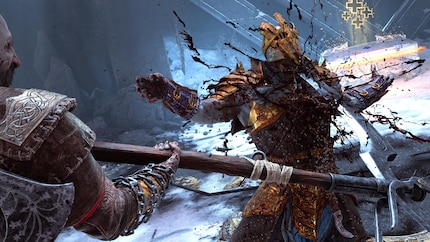
Source: Domagoj Belancic
In the first few fights, I’m completely overwhelmed. All the skills I had unlocked in the main game are immediately accessible in Valhalla. While that’s cool, I can’t quite remember all the weapons and moves, let alone all the keystroke combos. And so, I die and die again... until it suddenly clicks.
My muscle memory reactivates and I’m suddenly fighting my way through huge hordes of enemies like a demigod. And, god, does it feel good! I hadn’t realised how much I missed Kratos. It’s a shame I can’t go into battle with my allies from Ragnarök. With both Atreus and Freya not there to join the fight, I have to slash my way through Valhalla alone as the bearded muscleman.
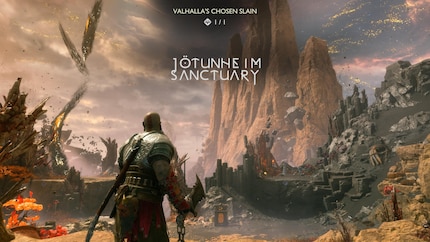
Source: Domagoj Belancic
If I die during a run, I respawn at the gates of Valhalla. There I can buy permanent upgrades that make my life in the arenas easier by improving Kratos’ stats or permanently changing the environments in the arenas to my advantage. I collect the points for these upgrades during the runs. The further I get, the more monsters I kill and the more pots I smash, the more points I get for permanent upgrades. Each upgrade makes the runs a touch easier.
During the runs, there are also numerous temporary upgrades that Kratos can buy or find in treasure chests. If I die, all these temporary rewards are reset. There are numerous perks I can get which significantly change the gameplay with small, clever twists. The powerful rune special attacks are another thing I have to acquire anew in each run. In addition, I can improve Kratos’s various weapon and equipment statistics.
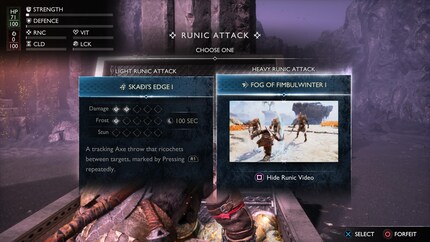
Source: Domagoj Belancic
With bonus points and challenges running in the background, the game keeps motivating me to try out new builds. Thanks to the wide range of possible combinations, every run feels totally different. I can control which upgrades I want to concentrate on to a large extent. The game tells me which rewards await me in which arenas and allows me to choose with path I want to take through Valhalla.
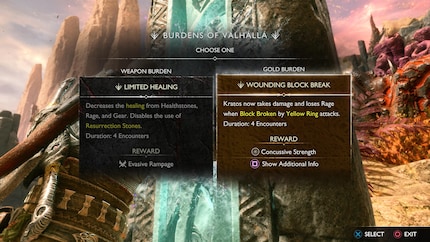
Source: Domagoj Belancic
What makes the expansion so great?
Valhalla isn’t just a boss rush mode under rogue-lite guise. On the contrary, the story about the former Greek god of war is driven forward in a clever way – through in-game conversations between Kratos and Mimir about what happened between the end of Ragnarok and the beginning of Valhalla. The relationship between Kratos and Freya, meanwhile, is further delved into in cutscenes.
I think the developers did a terrific job interweaving the story into the gameplay. In the Valhalla challenges, Kratos must face up to his past – in Norse and Greek mythology. The further you get in the arenas, the further back into Kratos’s past you go.
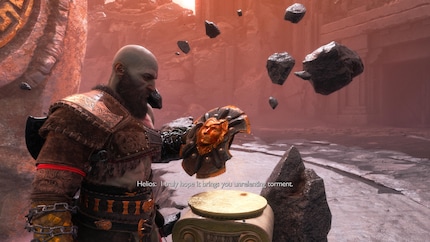
Source: Domagoj Belancic.
Valhalla is pure confrontational therapy. And it really packs a punch at times. In the later arenas, the demigod has to come to terms with all the atrocities he committed in his old homeland. The expansion manages to build a bridge between the old and the new Kratos through flashbacks and conversations with characters from the past. This gives his character even more depth and contextualises his reluctance to take on his new role as the god of peace.
Something especially cool is that on the way through his Greek past, Kratos also has to face monsters from the old God of War games. For long-time fans, this part of the expansion is a dream come true. It feels surreal to compete against classic opponents from the PS2 games in a modern setting and combat system. And there’s more. The game has countless further surprises in store for fans of the original games. That’s all I’ll give away.
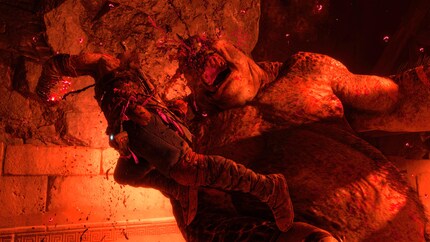
Source: Domagoj Belancic
My verdict: don’t miss out on Valhalla
I don’t understand why the Valhalla expansion is free of charge. The «thank you to God of War fans» could just as well have been a paid DLC. It took me about six hours to reach the end of the Valhalla story. If I wanted to unlock and see absolutely everything, I could probably have invested another six hours in the game. That’s a ton of free entertainment.
Apart from its sheer size, Valhalla shines with its perfectly implemented gameplay loop that even wins over sceptics of the rogue genre like myself. God of War’s brutal gameplay is elegantly forged into a motivating rogue-lite structure. The result? Numerous unpredictable and varied runs through Valhalla that get my pulse racing. I’m also hugely impressed by how the gameplay is linked to the story. Krato’s journey through the arenas of Valhalla is simultaneously a journey through his past and a therapy session. God of War Ragnarök: Valhalla is an unexpectedly emotional conclusion to Kratos’s Norse saga and a must-play for all fans of the series.
God of War Ragnarök is available for PS5 and PS4. Valhalla is available as a free download for both platforms.
My love of video games was unleashed at the tender age of five by the original Gameboy. Over the years, it's grown in leaps and bounds.
Which films, shows, books, games or board games are genuinely great? Recommendations from our personal experience.
Show all